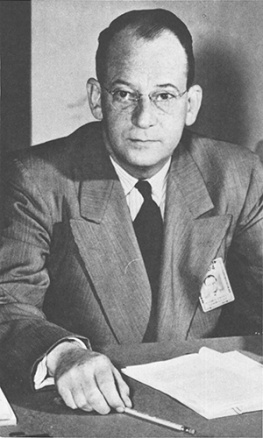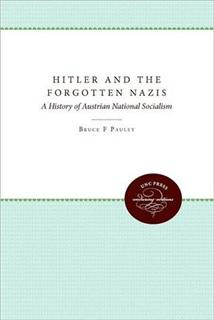1987 The University of North Carolina Press
All rights reserved
Manufactured in the United States of America
Library of Congress Cataloging-in-Publication Data
Dean, Gordon E., 19051958.
Forging the atomic shield.
Includes index.
1. Nuclear energyGovernment policyUnited States. 2. Dean, Gordon E., 19051958Diaries. 3. U.S. Atomic Energy CommissionHistory. I. Anders, Roger M. II. Title.
QC773.3.U5D43 1978 333.79240973 86-11385
ISBN 0-8078-5723-8
Designed by Naomi P. Slifkin
Gordon Dean in May 1949. Dean posed for this official photograph just after he joined the Atomic Energy Commission. (Department of Energy)
To the Memory of Bernard T. Weaklen
Contents
ONE
The Hydrogen Bomb
September 20, 1949, to January 30, 1950
TWO
The Impact of Korea
July 11, 1950, to January 12, 1951
THREE
The Rosenbergs, the Hydrogen Bomb, and Korea
January 26, 1951, to June 17, 1951
FOUR
Tactical Nuclear Weapons
June 21, 1951, to January 17, 1952
FIVE
The New Super and a New President
March 27, 1932, to January 15, 1953
SIX
The Eisenhower Budget
January 20, 1933, to June 29, 1933
ILLUSTRATIONS AND TABLES
Illustrations
Gordon Dean in May 1949
Tables
PREFACE
In the early 1950s the chairman of the Atomic Energy Commission was one of Washingtons most powerful policymakers. Although he worked with four other commissioners to formulate atomic energy policy, he presided over an organization vested with authority more sweeping than had ever been given to a peacetime agency. So broad, in fact, was the congressional mandate of the Atomic Energy Commission that it exercised a government monopoly of atomic energy. The chairmans domain was thus aptly described as an island of socialism in the midst of a free enterprise economy. Indeed, with the consent of his fellow commissioners, he could do virtually anything to put atomic energy to work in promoting public safety and welfare.
Congress, however, gave the commission such sweeping authority in order to expedite the production of nuclear weaponsthen a novel, experimental, complex, esoteric, and very mysterious activity both to the layman and to the lay member of Congress. Also a highly secret activity, nuclear weapons production required some of the largest factories ever built, absorbed the creative genius of some of Americas best scientists and engineers, required testing grounds hundreds of square miles in area, and necessitated the development of some of the most delicate and sensitive scientific instruments ever devised. In 1950 such activities demanded the efforts of five thousand government employees and sixty-eight thousand contractor employees working on programs greater in scope and complexity than those of any individual private corporation. Although the atom promised one day to deliver its share of peaceful technological marvels, the primary task of the chairman and the commission was to build, improve, and increase the atomic arsenal. The atomic bomb, an experimental product of hastily built facilities, had suddenly brought the largest and most devastating war in history to an end; now the commission was required to forge it into a weapon that would help to guarantee Americas freedom from Communist aggression.
The aura and power invested in the commission and its chairman were even reflected in some of the more routine provisions of the agencys legislative mandate, the Atomic Energy Act of 1946. To attract the best talent to the commission, the chairman was not bound by Civil Service regulations or pay scales. Because the commission and its activities were regarded as an experiment, the chairman could shift appropriated funds among programs. He had powers to issue subpoenas, conduct investigations, and hold formal hearings similar to those of congressional committees.
How, we might wonder, did a person act when occupying such a powerful but potentially daunting position? How did events and personalities look from the chairmans perspective? How did he solve the brand-new problems of atomic energy while having to grapple with the more enduring problems of human nature? Fortunately we do not have to base answers to such questions upon speculation or inferences from bland official texts. While he was chairman of the commission during the Korean War, Gordon E. Dean kept an office diary composed largely of notes of his telephone calls. His contemporaneous record of his world provides a unique view of the early days of atomic energy.
The diary allows us to relive events as they unfolded over Deans telephone. To open the diary is to enter the world of atomic energy during the second Truman administration, a world largely hidden from contemporary America. Through the diary we can follow Dean as he mobilized atomic energy for the Korean War, oversaw the development of the hydrogen bomb, fought political battles, prosecuted atom spies, dealt with the powerful personalities of the day, and, at one point, believed the world had come to the verge of World War III. Few documents give us a similar opportunity for developing empathy with the past.
Deans diary captures atomic energy at a crucial time. The world was in transition from nuclear warfare to thermonuclear warfare. The Atomic Energy Commission was building a vast complex of plants to produce fissionable materials that would soon bring the stockpile from atomic scarcity to atomic plenty. The deployment of nuclear weapons was becoming global in scope. Americas leaders saw themselves as locked in a bitter, endless struggle with godless Communistsboth at home and abroad. Their fervor as well as Deans was fueled by a moral certainty about the righteousness of their cause.
A glimpse of history as it was being made, an inside look at the Atomic Energy Commission when the military atom was paramount, a view of atomic energy at a transitional period, an intimate portrait of a staunch anti-Communist during the McCarthy erathese are the images that we get from Deans diary.
I have been editing the Dean diary in my spare time for the last six years. A largely classified document when I began the task, now virtually the entire diary has been declassified. Because it was a highly classified document pertaining solely to the official business of the Atomic Energy Commission, Dean left the diary with the Atomic Energy Commission when he left the chairmanship. Now it is preserved by the History Division of the Department of Energy. Most of the diary, including portions not included here, is now available to the public. Access to unedited portions of the diary, as well as to portions used for this work, may be obtained by writing to the History Division, Department of Energy, Washington, D.C.
I owe thanks to many for aid during the preparation of this edition of Gordon Deans office diary. William V. Vitale, director of the Executive Secretariat of the department, of whose organization the History Division is a part, approved the nonofficial publication of the diary. Jack M. Holl, the chief historian of the department, encouraged me to edit the diary and advised me on how to obtain departmental review and approval for a nonofficial project. Alice L. Buck, Philip L. Cantelon, Francis Duncan, Jack Holl, George T. Mazuzan, and J. Samuel Walker read drafts of the manuscript and gave valuable suggestions for improving it. Good friends as well as colleagues, Mazuzan and Walker also gave constant encouragement and advice during the departments review of the project. David F. Trask gave essential advice at a crucial point during the departmental review. Richard G. Hewlett shared with me his knowledge of former Atomic Energy Commission employees and his evaluations of former chairmen. Susan R. Falb, now historian with the Federal Bureau of Investigation, smoothed access to Dean records at the National Archives. Benedict K. Zobrist, Dennis Bilger, and the staff of the Harry S. Truman Presidential Library in Independence, Missouri, cheerfully fielded inquiries and directed me to pertinent materials in various collections. Annette Barnes quickly and accurately typed portions of the draft manuscript.




